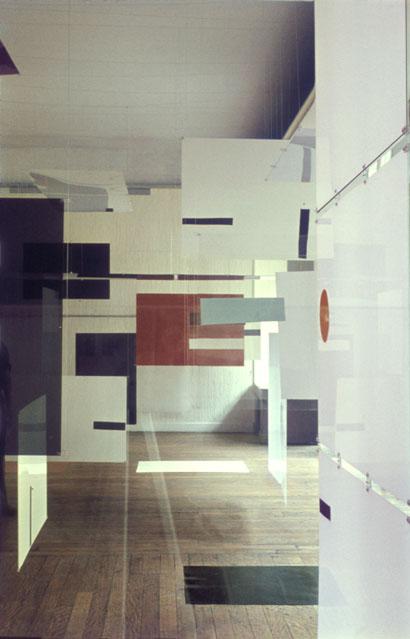Friday Salon: Curating the Archive
7 Mar 2014
With the rise and rise of curating in the post-war period as a professional activity and theorised level of practice, the scope of what we understand to be ‘curated’ and who we understand to be a ‘curator’ has greatly expanded. This expansion has been concomitant with the growth of recording technologies and the possibilities of archival preservation. How are these two areas, the archival and the curatorial, connected and what might an exploration of an expanded archive of contemporary art, curating and institutions reveal about the limits and potentialities of practice today?
In this Salon, led by Dr Ben Cranfield, six current PhD researchers will present an object from their research that relates to the interconnected fields of contemporary art, curating and philosophy, art institutions, non-traditional museums and collections, print-media and activism. Through a discussion of their work, in relation to a current ‘archival turn’ in curating, we will consider the value of and problems associated with the reanimation of the traces of creative practice and cultural institutions.
To begin our discussion we pose the following questions:
What do recent archival presentations make visible and rendered invisible?
What is the role of the archive in contemporary curatorial and artistic practice?
How do we understand the ‘afterlife’ of artworks as they travel through the archives and institutions of art discourse?
How do archival traces reveal and trouble the structures of an institution?
How might an expanded understanding of institutions and practice, through an examination of divergent cultural forms and spaces, interrupt the canonical and the professional?
‘Something – anything – becomes a possible object of philosophical interpretation – that is, a possible object of experience of truth, in so far as it is grasped as a fragment: namely, a finite form that carries a reference to the infinite, negatively, through the combination of the partiality of its content and the completeness or self-sufficiency of its form.'
- Peter Osborne, Anywhere or Not At All: Philosophy of Contemporary Art, London and Brooklyn: Verso, 2013, p. 60‘Today I imagine curating as a way of thinking in terms of interconnections: linking objects, images, processes, people, locations, histories, and discourses in physical space like an active catalyst, generating twists, turns, and tensions.’
- Maria Lind, Writing, edited by Brian Kuan Wood with selections and responses by Beatrice von Bismarck, Ana Paula Green, Liam Gillick and Tirdad Zolghdar, Berlin: Sternberg Press, 2010, p.63
Participants include:
Dr Ben Cranfield is Course Director of the Doctoral Programme in Humanities and Cultural Studies and the new Mres Cultural Enquiry, Birkbeck. He is currently researching and writing on the relationship between the archival and the curatorial in the formation of ideas and forms of the contemporary.
Dr Fiona Candlin is a Senior Lecture in Museum Studies at Birkbeck. Her publications include Art, Museums and Touch. Manchester: Manchester University Press (2010) and The Object Reader (with Raiford Guins) London: Routledge (2008). Her current work on small independent single subject museums - which she calls 'micromuseums' - challenges dominant understandings of museums and of curating.
Lucy Bayley is a writer and curator currently undertaking a Collaborative PhD The ICA: A History of the Contemporary with Middlesex University and the Institute of Contemporary Arts. Her research focuses on elements within ICA's archive post-1968 and proposes the cross disciplinary history of the Institute as a series of vignettes.
Julia Beaumont-Jones specialises in British works on paper, and from 2005-2013 managed Tate's Prints and Drawings Rooms. Currently she is researching for a PhD at Birkbeck, focusing on the Printmaking Boom in Britain (c.1958-1975), its origins and legacy for the aesthetics of print and national collecting today.
Elizabeth Johnson is currently researching her PhD thesis, 'Body of sculpture: An investigation of sculpture and the performance of perception during the post-minimalist era through the work of Bruce Nauman, 1966-1972,' at the London Consortium, Birkbeck.
Matthew Morgan is Adult Learning Officer at the National Gallery and an Associate Lecturer at Birkbeck. Through the lens of art museums in Las Vegas, his PhD research investigates the ways in which art museums seek to influence the discourses about themselves through catalogues, architecture and programming.
Valentina Ravaglia is a PhD candidate at the London Consortium, Birkbeck, and works as Assistant Curator for Displays at Tate Modern. Her research project “Experiencing Art at the Limits of Knowledge” looks at exhibitions as epistemological testing grounds.
Rebecca Sykes is a writer and arts educator, currently researching for a PhD at Birkbeck, exploring contemporary strategies of institutional critique.


